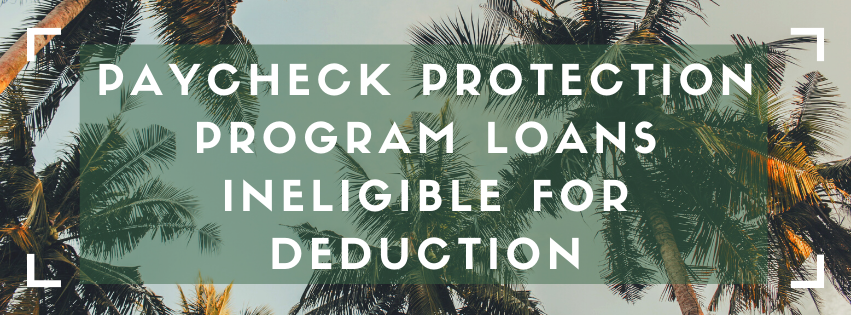If you are a small business owner who has recently had your Paycheck Protection Program loans forgiven, you may face unintended setbacks when you go to file your taxes. Unfortunately, according to an April 30th update from the IRS, companies that qualify for loan forgiveness will not be able to deduct business expenses or wages paid for using the original loan, leaving many businesses with more tax liability than they anticipated.
The thinking behind this decision is that small business owners will be kept from “double dipping” and getting multiple tax benefits. The loan program is designed to help cover the expenses of eight weeks of payroll costs, thereby reducing the number of employees facing layoffs and furloughs and tapering the rising unemployment rate. Forgiven loans will not be taxed, according to the IRS. Instead, the money will be considered “tax exempt”.
When debts are forgiven, generally that amount becomes taxable income. But the IRS will not tax the loan amount forgiven as income. However, the expenses may not be claimed on the income tax return meaning the you cannot write off wages, transportation, rent, or other expenses that were paid using the loan.
According to Tax Pro Today, this decision has left a bad taste in the mouths of many business owners, especially those who already experienced technical difficulties in the loan application process or were unable to receive money before the first round of funding was depleted less than two weeks after the program’s debut. While this is certainly less than ideal for entrepreneurs, the $670 billion dollar loan program for small businesses is still a lifeline for many struggling under the economic closures caused by the Coronavirus pandemic.
If you are unsure how this will impact your tax liability, be sure to talk with your CPA. In the event your liability would be more than anticipated, you’ll have time to save funds towards the payment due.
